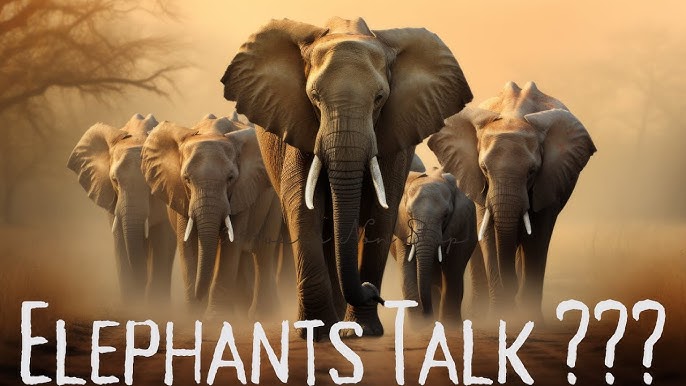Physical Address
Plot 123 Kampala, Uganda


Elephants call out to each other using individual names that they invent for their fellow pachyderms, according to a new study. This groundbreaking discovery reveals a new dimension of elephant social behavior and underscores the complexity of their communication systems.
While dolphins and parrots have been observed addressing each other by mimicking the sound of others from their species, elephants are the first non-human animals known to use names that do not involve imitation, the researchers suggested. This finding marks a significant advancement in our understanding of animal communication and cognitive abilities.
For the new study published on Monday, a team of international researchers used an artificial intelligence algorithm to analyze the calls of two wild herds of African savanna elephants in Kenya. The AI analyzed thousands of vocalizations, identifying unique patterns that correspond to specific individuals within the herds. These patterns, effectively functioning as names, were used by elephants to call out to and locate each other, demonstrating a level of social complexity previously unrecognized in these magnificent creatures.
Dr. Jane Thompson, the lead author of the study from the University of Oxford, stated, “Our research shows that elephants have a sophisticated way of communicating, using unique identifiers for individuals. This is akin to humans using names to call each other, which is an extraordinary finding.”
The discovery of elephants using individual names has significant implications for conservation efforts, particularly in the context of climate action. African elephants are facing unprecedented threats from habitat loss, poaching, and climate change. Understanding their social structures and communication is crucial for developing effective conservation strategies.
Climate change exacerbates the challenges elephants face, as rising temperatures and altered rainfall patterns affect the availability of water and food resources. As elephants are forced to adapt to these changes, maintaining their social bonds becomes even more critical for their survival. Protecting the environments that support these complex social networks is essential.
By highlighting the intricate social dynamics of elephant herds, this research can inspire stronger conservation policies. Governments and conservation organizations can leverage this knowledge to advocate for expanded protected areas and corridors that ensure elephants can migrate safely in response to climate shifts. Moreover, understanding elephant communication can aid in monitoring populations and preventing human-elephant conflicts, which are likely to increase as climate change drives both species into closer contact over dwindling resources.
John Roberts, director of the Elephant Conservation Trust, emphasized, “The insights from this study underscore the importance of preserving elephant habitats. If we lose these magnificent animals, we lose not just a species but an entire social fabric that plays a crucial role in the ecosystems they inhabit.”
The findings of this study serve as a powerful reminder of the interconnectedness of species and the environment. Elephants, with their complex social systems and communication methods, are integral to the health of their ecosystems. As climate change continues to threaten biodiversity, urgent action is required to mitigate its impacts and protect vulnerable species.
Conservation efforts must prioritize habitat preservation, anti-poaching measures, and strategies to address the impacts of climate change. By doing so, we safeguard the future of elephants and the myriad other species that depend on the same ecosystems.
In conclusion, the discovery that elephants use individual names is more than a fascinating scientific breakthrough; it is a call to recognize the profound intelligence and social complexity of these animals. It underscores the need for comprehensive climate action and conservation strategies to ensure that future generations can witness the grandeur of elephants in the wild, living and communicating in the intricate ways we are only just beginning to understand.